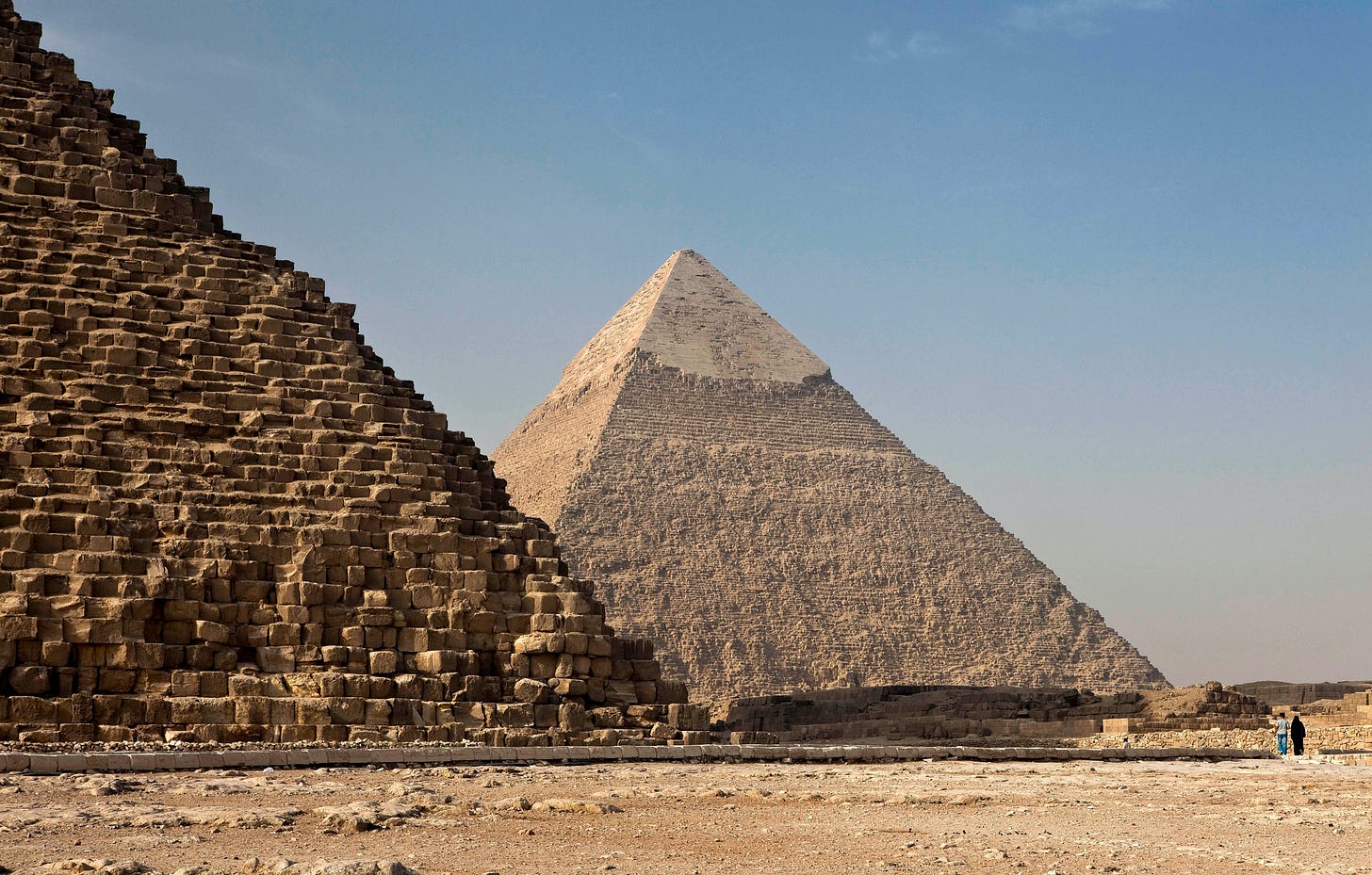Welcome to Thursday Things! If you enjoy this edition, please click the heart icon in the heading or at the end of the post to let me know. You can also post a comment by clicking the dialog bubble next to the heart.
All we are is dust in the wind. Photo by Ricardo Gomez Angel on Unsplash
Egypt Has Unearthed 160 Ancient Coffins Since September. Some Were Sealed With a 'Curse' Come on, Egypt! Couldn’t this wait until 2021? Now is not a good time to be fooling around with cursed mummy coffins.
Archaeologists have discovered 160 human coffins at the site over the last three months, which they plan to disperse to museums around Egypt. They even opened a few to examine the mummies inside.
No! Put the mummy down.
According to experts, some of the Saqqara tombs have colourful curses inscribed on the walls to warn away intruders.
Of course they do.
Salima Ikram, an Egyptologist at the American University in Cairo … told Business Insider in an email that the inscribed warnings in human tombs mostly serve to deter trespassers intent on desecrating the mummies' resting places.
Oh. So a curse on those who do exactly what you just did? Great.
Civil War soldier slang! Some of these words and phrases are still in used — skedaddle, for one. Others, less so. Pop skull is my favorite on this list. That one should make a comeback. I always enjoy finding examples of colorful language from the past and the forgotten origins of slang we still used more than a century later. The first twenty items in this article are from the Civil War. Then, like any true listicle, it keeps going and going into words from other eras … so start scrolling at your own risk.
Losing Arecibo's giant dish leaves humans more vulnerable to space rocks, scientists say Asteroids are constantly roaming the solar system, waiting to catch us off guard so they can pummel Earth and take us out like they did the dinosaurs. Asteroids are heartless like that. Our only defense is to watch the skies. That just got harder.
Planetary defense is the art of identifying and mitigating threats to Earth from asteroid impacts. And among its tools is planetary radar, an unusual capability that can give scientists a much better look at a nearby object. Arecibo Observatory in Puerto Rico was one of only a couple such systems on the planet, and that instrument's long tenure is over now after two failed cables made the telescope so unstable that there was no way to even evaluate its status without risking workers' lives, according to the U.S. National Science Foundation (NSF), which owns the site. Instead, it will be decommissioned.
And when it comes to planetary defense, there's nothing like it.
Losing Arecibo puts a big hold in our early warning system for detecting rogue asteroids that might want to take a swipe at us. Why did this vital space radar system fail now? I think we all know. Because it’s 2020, and because certain people can’t stop opening cursed Egyptian mummy coffins!
Good news from the world of science! AI Solves 50-Year-Old Science Problem In ‘Stunning Advance’ That Could Dramatically Change How We Fight Diseases, Researchers Say
For years, scientists have been struggling with the problem of “protein folding” – mapping the three-dimensional shapes of the proteins that are responsible for diseases from cancer to Covid-19.
Google’s Deepmind claims to have created an artificially intelligent program called “AlphaFold” that is able to solve those problems in a matter of days.
If it works, the solution has come “decades” before it was expected, according to experts, and could have transformative effects in the way diseases are treated.
There are 200 million known proteins at present but only a fraction have actually been unfolded to fully understand what they do and how they work. Even those that have been successfully understood often rely on expensive and time-intensive techniques, with scientists spending years unfolding each structure and relying on equipment that can cost many millions of dollars.
From my time working for the biotech industry, I know how huge this is — if it works as advertised. Being able to solve “protein folding” problems quickly and (relatively) cheaply will be a huge boost to identifying potential new drugs and drug targets faster and more accurately.
Bad news from the world of science! Our Solar System Is Going to Totally Disintegrate Sooner Than We Thought
One day, our Sun will die, ejecting a large proportion of its mass before its core shrinks down into a white dwarf, gradually leaking heat until it's nothing more than a cold, dark, dead lump of rock, a thousand trillion years later.
But the rest of the Solar System will be long gone by then. According to new simulations, it will take just 100 billion years for any remaining planets to skedaddle off across the galaxy, leaving the dying Sun far behind.
This is what happens when you mess around with cursed Egyptian mummies.
Get all the details in The Astronomical Journal. Based on the latest calculations it looks like we’ve got, at best, 100 billion years until the Solar System breaks up. Plan accordingly.
At least until the solar system ends, the most important accomplishment of civilization will endure:
Namibian-German artist Max Siedentopf has set up a solar-powered sound installation in the coastal Namib Desert to play the soft-rock classic on a loop. He has chosen an undisclosed spot in the desert to set up six speakers attached to an MP3 player with the single track on it and promises that it will run 'for all eternity'.
Thank you for reading Thursday Things. Again, please click the hearts, comment, and use the share button to send this issue to a friend who might enjoy it. See you next Thursday!



